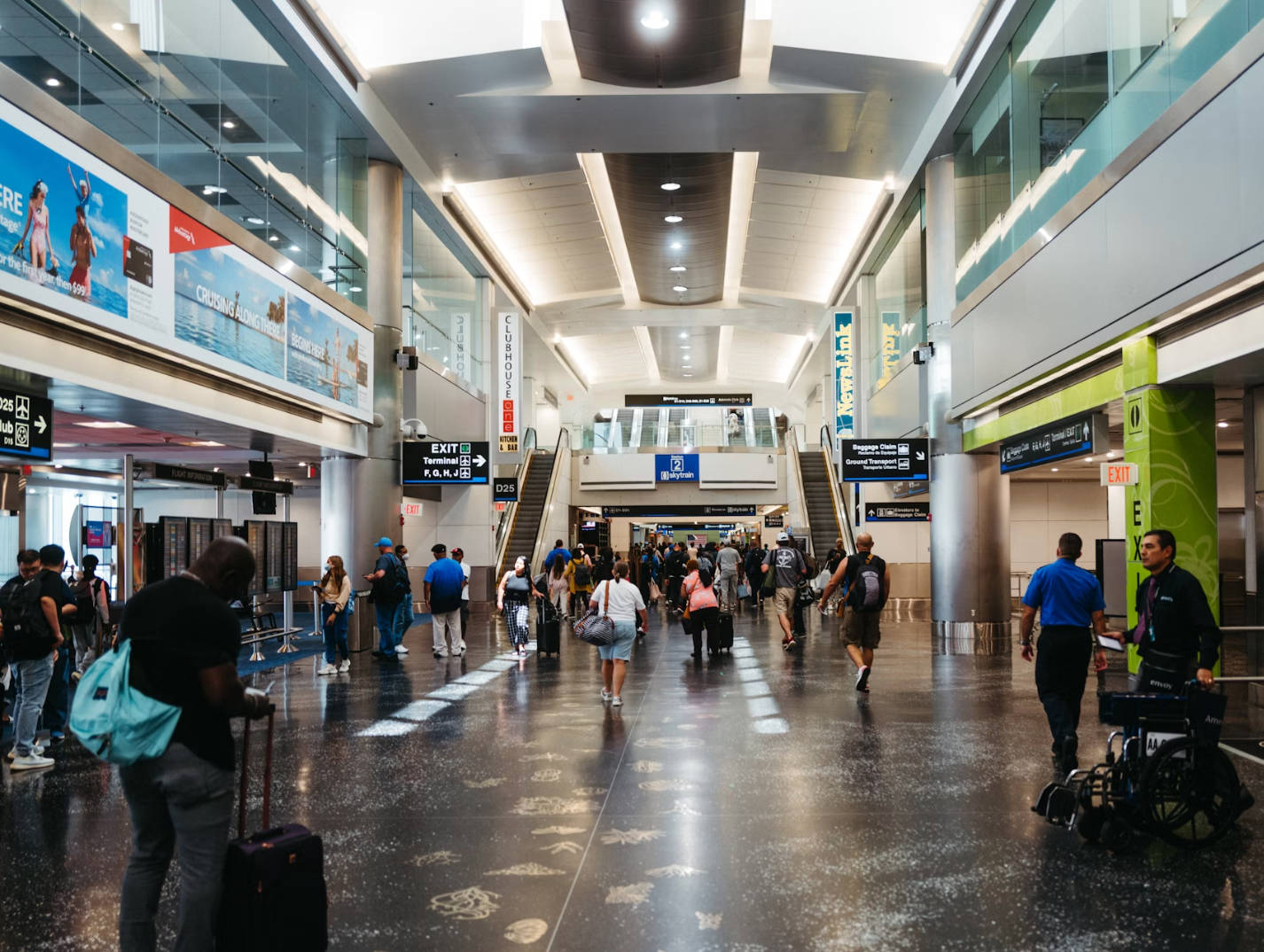The Role of Airport Terminal Maps in Passenger Awareness and Navigation
As someone who has spent countless hours in airports around the world, I can tell you that navigating these sprawling hubs can be a daunting task. Air travel has become an integral part of modern life, connecting people to distant destinations efficiently and conveniently. With airports continuing to expand and evolve, effective passenger awareness and navigation have never been more crucial. Over the years, I've come to rely on airport terminal maps available through various apps and platforms. These maps are indispensable tools for helping travelers like me get around efficiently, locate amenities, and optimize our overall airport experience.
Types of Maps and Apps
There are several types of airport terminal maps and accompanying applications that cater to different aspects of the passenger journey. These maps serve as virtual guides, helping travelers find their way from check-in to boarding gates, lounges, and more. Some of the most common types of maps and apps include:
Terminal Layout Maps:
These maps provide an overview of the entire airport terminal layout, highlighting key landmarks such as check-in counters, security checkpoints, immigration areas, baggage claim, and boarding gates. I remember the first time I landed in Tokyo's Narita Airport; the terminal layout map was my lifeline, helping me find my way in an unfamiliar environment.Wayfinding Apps:
Wayfinding apps offer step-by-step navigation, guiding passengers through the airport using real-time location tracking. These apps often use augmented reality (AR) or GPS technology to show users their precise location and direction. I once used a wayfinding app in Amsterdam's Schiphol Airport, and it felt like having a personal guide in my pocket, leading me straight to my gate with time to spare.Amenities and Services Maps:
These maps focus on showcasing the various amenities available within the airport, such as restaurants, shops, lounges, restrooms, and more. During a long layover in Dubai International Airport, I used an amenities map to locate a quiet lounge where I could relax and recharge.Parking and Ground Transportation Maps:
For those driving to the airport, parking and ground transportation maps are essential. They provide information about parking facilities, rental car locations, pick-up and drop-off points, and public transportation options. I recall a trip to Los Angeles International Airport where a parking map saved me a lot of time and hassle by guiding me directly to the nearest available parking spot.
Benefits to Travelers
The availability of comprehensive airport terminal maps offers numerous benefits to travelers:
Enhanced Efficiency:
Navigating a large and unfamiliar airport can be overwhelming. Terminal maps and navigation apps help passengers save time by providing the shortest routes to their destinations, ensuring they don't miss flights due to confusion. On a tight connection in London Heathrow, knowing the shortest route made all the difference.Reduced Stress:
Traveling can be stressful, and airports can be particularly anxiety-inducing. Maps and apps empower passengers with information, reducing stress by giving them a clear understanding of their surroundings. I always feel more at ease when I have a map that shows me exactly where to go.Optimized Layovers:
During layovers, passengers can use terminal maps to locate dining options, lounges, and relaxation areas, making the most of their time between flights. I remember a layover in Singapore Changi Airport where the terminal map helped me find a rooftop swimming pool – a perfect way to spend a few hours.Access to Information:
Terminal maps often include information about facilities' operating hours, services, and contact details. This accessibility to information ensures travelers can easily address their needs while at the airport. During a trip to Frankfurt, the terminal map provided contact details for lost and found, which was a lifesaver when I misplaced my passport.
VIDEO:
Creation and Maintenance of Airport Terminal Maps
The creation and maintenance of accurate airport terminal maps are collaborative efforts involving airport authorities, technology providers, and mapping experts. Data is collected through surveys, aerial imagery, and on-site visits to create a digital representation of the terminal layout. This data is then integrated into mapping software, which generates detailed and interactive maps for various platforms.
To maintain accuracy, airports update their maps regularly to reflect changes in terminal layouts, facilities, and amenities. Technology providers often partner with airports to ensure these updates are seamless, providing travelers with the most up-to-date information. I've noticed how quickly some airports update their maps, ensuring that even new shops or temporary construction zones are accurately depicted.
The Future of Airport Mapping
The future of airport mapping holds exciting possibilities. As technology advances, we can expect more immersive and interactive mapping experiences. Augmented reality will likely play a larger role, with passengers using AR glasses or smartphone apps to receive real-time navigation cues superimposed on their physical surroundings.
Additionally, personalized mapping experiences could become a norm, tailoring navigation suggestions based on passengers' preferences and needs. Integration with other smart technologies, such as smart luggage and wearable devices, could further enhance the overall travel experience. I'm particularly excited about the potential of personalized maps – imagine a map that knows your favorite coffee shop and guides you there as soon as you land!
In conclusion, airport terminal maps and the corresponding apps serve as invaluable tools for modern travelers, streamlining their journeys and reducing the stress associated with air travel. With advancements in technology, these maps are set to become even more user-friendly and interactive, providing passengers with seamless navigation and a smoother airport experience. Remember, if you're planning a trip, it's important to continue reading more about all aspects of airports to best prepare you for your journey!
FAQ: Airport Terminal Maps
Find more help here for your journey through the airport



